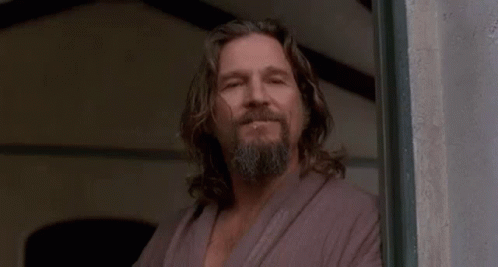I’m just curious about this. As someone with a chronic illness, I pretty much never hear anyone talk about things related to the sorts of difficulties and discrimination I and others might face within society. I’m not aware of companies or governments doing anything special to bring awareness on the same scale of say, pride month for instance. In fact certain aspects of accessibility were only normalized during the pandemic when healthy people needed them and now they’re being gradually rescinded now that they don’t. It’s annoying for those who’ve come to prefer those accommodations. It’s cruel for those who rely on them.
And just to be clear, I’m not suggesting this is an either or sort of thing. I’m just wondering why it’s not a that and this sort of thing. It’s possible I’m not considering the whole picture here, and I don’t mean for this to be controversial.
A lot of businesses look on people with disabilities as an expense rather than a market. And politically they’re too diverse to be considered a voting bloc except for certain issues. But July was Disability Pride Month… https://www.womansday.com/life/a43964487/disability-pride-flag/
Really not trying to be an asshole here… But why would anyone be proud of being disabled?
Perhaps reframe it as pride in still living, surviving, sometimes even flourishing in the face of a society that will not accommodate you. It’s also a really direct counter to the shame that is so prevalent amongst disabled people. I have an invisible disability and it’s taken many years for me to even accept that I am disabled, nevermind be happy with it, you know?
Yeah that would be a good idea.
Why shouldn’t a person be proud? They constantly use lateral thinking and creativity to maneuver through the world, and their disability is part of their unique identity. Their disabilities cause some of their problems but society causes more. Living with a disability doesn’t make a person less worthy of respect, self-respect, or pride in who they are. Having to face attitudes like yours every day is why we need to have celebrations of disability pride.
I wouldn’t call it pride, but I’m aware that a not insignificant portion of people would have just committed suicide rather than experiencing what I’ve gone through. Especially people who pride themselves on abilities that depend on being healthy. To experience something like years of torture and then to find a way to keep laughing is not insignificant.
Corpos can’t monetize it as easily as they can with lgbqt
Accommodating handicapped people with things like preferential parking, access ramps, etc, occurred in the 1970s and 80s everywhere in the United States, and many other countries have followed suit since then.
Reading down this thread so far, I have yet to see anyone acknowledge the fact that there is infrastructure in place for people with disabling physical conditions. Many physical conditions are still unaddressed, but it’s cherry-picking to willfully ignore something that is in front of our eyes every time we go to a store or cinema, restaurant chain or mall, and say that nothing has been done.
I also believe this is the same type of attitude that leads to thoroughly incomplete and flawed conclusions like “both parties are the same”.
As a sidenote that dovetails nicely, it was Democrats who pushed for handicapped accessibility across the country, while republicans were - of course - indifferent. Yet they went along with it. Nowadays, they would probably sabotage this type of campaign, with a monumental barrage of toxic propaganda.
I’m not aware of people saying nothing has been done, but not every health limitation reduces down to ramps and parking spots as a solution. And if people thinks that’s enough, then it’s just because they haven’t had to live with the conditions which make navigating society incredibly difficult, if not impossible.
deleted by creator
There are disability advocates and most industrial nations are trying to make things more accessible.
I guess it would help if you could bring up one particular issue that you face.
A lot of the points here are valid but I personally think it’s partly because disabled people aren’t “pretty”. There’s a narrow band of what’s sort of socially accepted as a disability and if you’re not in that band you’re kinda screwed. If it’s not visible enough you’re faking or overexaggerating or a hypochondriac. If it’s too visible it’s gross and annoying and ‘why are you even out if you need everyone to cater to you?’. And when it comes to issues and accepting them, I feel like most people mainly care about the “normal” people who just happen to be apart of that group. Your Ellen DeGenereses and captain Holts and whatnot. Think about it - whenever you usually see disabilities in media, it’s usually the same set of easily identifiable ones and a lot of the time the character in question has something that negates it in a way and if it is something more nonstandard, it seems like it’s the butt of the joke a lot of the time. And that doesn’t really work for disabilities because of how varied they are and how they often need conflicting things. You can’t just fight for the nice socially acceptable ones and call it a day.
Same goes for mental illness - it feels like most people are still working from the same set of sterotypes where you’re either a deranged maniac or an inaccurate sterotype like a savant with no social skills or maybe a hyper idealised version of said condition. And it’s hard to fight for accommodation when people don’t even understand what you’re fighting for.
People don’t take pride in those things like they do being gay, bi or trans.
Removed by mod
❤️
No point in riding bikes, then?
Mood
Even in that regard, people who have cancer are often portrayed as fighters, survivors and what not. We don’t frame people who deal with chronic issues day in and day out for the rest of their lives that way though, or at least not to the same extent. We don’t treat it as if they have something to teach healthy people about resilience.
At most we have overly happy ads for medicines which constantly mischaracterize what it’s like to live with certain conditions and which give healthy people the perspective that help is just a drug away. I’m not saying those can’t help, but the ads give the impression that if you’re not living a full life, that’s on you because we’re surrounded by miracle cures.
Some mental illnesses are “cool” or “accepted” now. They are socially acceptable to talk about and having one can even give you clout. Depression and ADHD are in this category.
The rest of the disabilities are still too taboo to talk about. You are better off just keeping it to yourself. Bipolar, schizo-affective, and borderline personality disorder are in this category.
Today, people will tell you with a straight face that they are a victim because they have one of the popular illnesses. It is “in” to be a victim now but, ironically, it’s only socially acceptable to be a victim of some illnesses. If you have e.g. bipolar disorder it’s so stigmatized that you will face repercussions for announcing it yet people still have the audacity to tell you they are a victim.
I don’t think it is about taking pride in being ill, pride was just an example. Its likely more about visibility and having rights and accommodations.
Although, they should be proud- not proud to be ill, but proud of their ability. Sick and in pain people have to traverse a world most people could never imagine.
If it’s worth anything, all the visibilization, representation and positive portrayal of disability and chronic illness I’ve ever seen (and it has steadily grown in the past 10 years in my experience) has come through LGBT+ or LGBT+friendly spaces or hand in hand with them (once again, in my experience). I don’t known how mainstream it is though, since my browsing habits are not that mainstream
To add, as most responses here seem correct but I haven’t seen this said.
In recent mentors memory there has not been a moral judgement attached to disabilities. There’s a lack of societal hate to overcome, everyone agrees disabilities suck and aren’t your fault. So there’s no rallies, no allies.
Protections and accommodations for those groups are codified into law much more firmly and with longer tenure as a part of decent society.
By contrast, we’re unfortunately not far removed from the time when the word “gay”, for example, was commonly used as a pejorative for just about everything. LGBTQIA+ people are also very often attacked and killed for their status as such in the modern world.
So that gap in concrete societal norms and established, ubiquitous law are what demand a more active PRIDE movement right now to help people feel seen and spread awareness to counteract hate and ignorance (which hopefully leads to similar enforced protections for these communities).
All are valid though and need more support.
Excuse my ignorance because my only (known) disability is needing corrective lenses.
LGBTQ rights and issues are relatively straightforward (where the goal is to love whoever you love and act like the person you want to be). Disability (to me) is much more of a vague and broad concept so I don’t know what the aim of a movement would be.
The causes of disability range from a voluntary or involuntary event, whether it’s a workplace incident, sports, car crash, or sometimes people have it from birth. People inflicted with conditions such as blindness, deafness, speech impediment, schizophrenia, or being bound to a mobility or other device like a wheelchair, pacemaker, hearing aid. There’s such variety and people need assistance in different ways.
I try to help where I can, but I have trouble offering help sometimes. How do I support someone without calling attention to their disability?
I’m disabled and really we just need people to know and talk about how many of us live in poverty in wealthy countries. Look up how much a disabled person must live on for your part of the world. In my area, I have a bottom of the market, illegal rental suite in middle-of-nowhere farmland and rent takes up 2/3 of my monthly income, this is after we just got a boost to our shelter allowance. I live in Canada, some countries are worse, some are better. We just passed a new law federally that is supposed help a lot, but it will take about a year to get rolling and we’ve heard these kinds of promises before. We shall see.
A well supported disabled person can still contribute to society in other ways than a full time job, but right now we makeup the bulk of homelessness, a growing problem, globally. This problem is systemic, change must be legislative and that will only happen if these issues are in people’s minds and conversations. So just do a bit of googling, find out how much a single person on disability gets, and talk about it with your friends. Get them to talk about it with theirs. If you really want to do your disabled neighbours a solid, write to your elected representative about these issues.
This is true. Many people at my age are at or nearly at the peak of their careers. I’m meanwhile trying to find something…anything that works with the limitations I have. Short of luck, I don’t know how to avoid a future which doesn’t result in poverty.
There is actually a quite hardcore history of advocacy that cropped up in the civil rights era where folk with disabilities performed some really heroic protest. The tale of Ed Roberts and the “Rolling Quads” is pretty legendary stuff.
The wins established a mostly unchallenged veiw at a legal level that differently abled people deserve to have their participation in society facilliatied. It was a major win…
But with success comes stagnation. Part of why the LGBTQIA+ is so visible is the movement is still marching and there is a secondary purpose to the movement. The visibility of actually running up a flag in those communities is a way to make something potentially invisible visible. To give a sense of solidarity. A lot of subjugation techniques of the past were to make people feel like they couldn’t possibly make strides for equality because their numbers were too small. Prides are the antithesis to that form of subjugation and for lost souls cast out from their families to find a non-hostile culture. Prides are run by legacy volunteers and are huge in participation so people who want to gain political points for future votes or as an audience gathering together anyway to advertize to look at tipping their hat to the movement as personally adventageous. They don’t nessisarily do it out of generosity and respect. While it’s possible they do actually have aligned principles of civil rights it is basic backscratching as the LGBTQIA have something they want. Votes or dollars.
As far as I am aware Disability civil rights advocacy has moved mostly into the pocketsquare and tie political sphere rather than the rough and tumble social advocacy battles where it began and as a result the short memory of society has forgotten the impact and demands of those voices in the villiage square ring of cultural advocacy. Since fewer people are counted on to be tuned into C-SPAN then can be counted at to go paint some rainbows on their faces and participate in a mardi gras style carnival event it doesn’t get the same level of attention.
In short - effective cultural advocacy along the lines of the LGBTQIA is driven by communities banding together and going out and being visible in force and making some kind of public fuss. All the better if it’s an over the top fun day… Or if you set fire to things and riot that basically gets people talking and asking questions too. Basically whatever works to be the loudest squeeky wheel. Otherwise non-minority folk who don’t have to think about your needs will forget to ask you what you need or straight up forget you exist.
I will add another thing. Many disabled people aren’t working force Because they can’t/there’s no acoomodation, etc What this means is that they don’t generate money And corporations/capitalism don’t care for people who are a burden
Removed by mod
I think the ADA is a positive step, but that was over three decades ago now. The silence in terms of further steps since then is significant.
There hasn’t been silence, I think you’re just not listening: https://en.m.wikipedia.org/wiki/Timeline_of_disability_rights_in_the_United_States
I’ve lived it every day for the last dozen years. I think I know what my experience in this regard has been.
Given that people who are disabled have, seriously, a LOT more legal protections regarding housing, employment, equal access, etc, than people who are LGBTQ, as well as specialized pathways to income and health insurance, I’m just wondering what you want to be different? Are you referencing the time of year when companies slap rainbows on everything and wondering why that doesn’t happen for people who are disabled?
I should also point out large segments of the US population actively persecute people who are LGBTQ, while there is no equivalent political animus toward people who are disabled
Like what? You want a month? Do you know when National Disability Employment Awareness Month is? I’ll give you a few minutes to go look it up.
How about for accessibility and visibility to be the norm, not just something that gets whipped out when the regular folks have a problem.
Having a month dedicated on a calendar is fine, but it doesn’t mean much if it doesn’t impact society in any significant way.
The ADA is so much more than wheelchair accessibility too, people with disabilities have much more potent federal laws on their side than the LGBTQ community does
I mean, you’re basically describing the point of intersectional activism.
Time for a wiki-kick. I don’t know much about it. I’ve literally been living outside society for over a decade.
Your not alone. Same here. Lots of ideas round here.
I’ve honestly never really heard anyone complaining about it. You need to make a fuss.
You also need to ask us to implement a solution. “Make this wheelchair accessible” is actionable, but I literally have no idea what OP (or the other people who are saying they agree) want
That’s where it gets tough. I know what might be helpful to me, but that may not have any bearing on somebody else’s condition. If there’s not a general willingness to want to improve society more broadly then it can just come across as noise in terms of the extent of what’s called for as compared to what the rest of society is willing to accommodate. And even if my situation is incredibly inconvenient to me, how do I weigh it against the needs of another person whose concerns are potentially greater than my own?
I think you might’ve just answered your original question.
This can be considered a micro-fuss for starters.







